
Teacher Aide Courses in Western Australia: Your Path to a Family-Friendly Career
A teacher aide course is the first step towards an incredibly fulfilling career supporting students and teachers in Western Australia's diverse education landscape. With over 1,100 WA schools seeking passionate, qualified education support professionals, there has never been a better time to gain the practical skills and knowledge to excel in this high-demand field.

ITAC, a trusted provider of nationally recognised teacher aide courses, offers three carefully crafted pathways to help you achieve your goals: the introductory CHC30221 Certificate III in School Based Education Support, the more advanced CHC40221 Certificate IV in School Based Education Support, and the popular Education Support Combo. Our experienced Perth-based trainers, flexible online delivery, and strong focus on practical, job-ready skills set our courses apart.
Key Takeaways from This Comprehensive Guide:
- You can study your teacher aide course entirely online (excluding placement) from anywhere in WA, with the flexibility to balance learning with work and family commitments.
- The 100 hour practical placement is a crucial component of your course, giving you hands-on experience in real school settings and preparing you for employment success.
- The duration of your teacher aide course depends on factors like your prior experience and availability each week, but can be completed in as little as 6 months – less for those with experience in the workforce or with children.
- Choosing the right teacher aide course depends on your career goals, experience, and the types of students you want to support, with options ranging from entry-level (Certificate III) to more specialised qualifications that attract higher pay (Certificate IV).
- There is a strong demand for skilled teacher aides, also known as Education Assistants (EA), in WA schools, especially for those who have completed a reputable teacher aide course. Job opportunities are available in diverse settings, such as primary, secondary, and special needs classrooms.
- Schools increasingly seek teacher aides with training in research-based strategies for supporting student learning and wellbeing. A reputable course is critical to your career success.
- When selecting a teacher aide course in WA, look for experienced local trainers, flexible delivery options, practical placement support including site visits, and strong industry connections. We recommend an integrated program in order to save time and money.
- As a teacher aide, you can work in a variety of WA school types, from government and independent schools to alternative education settings, especially if you complete both qualifications.
- Teacher aides in WA schools perform a wide range of roles, from providing general classroom support to working closely with students who have disabilities or additional needs.
- A career as a teacher aide offers excellent work-life balance, with family-friendly hours, school holidays, and the opportunity to make a real difference in your local community.
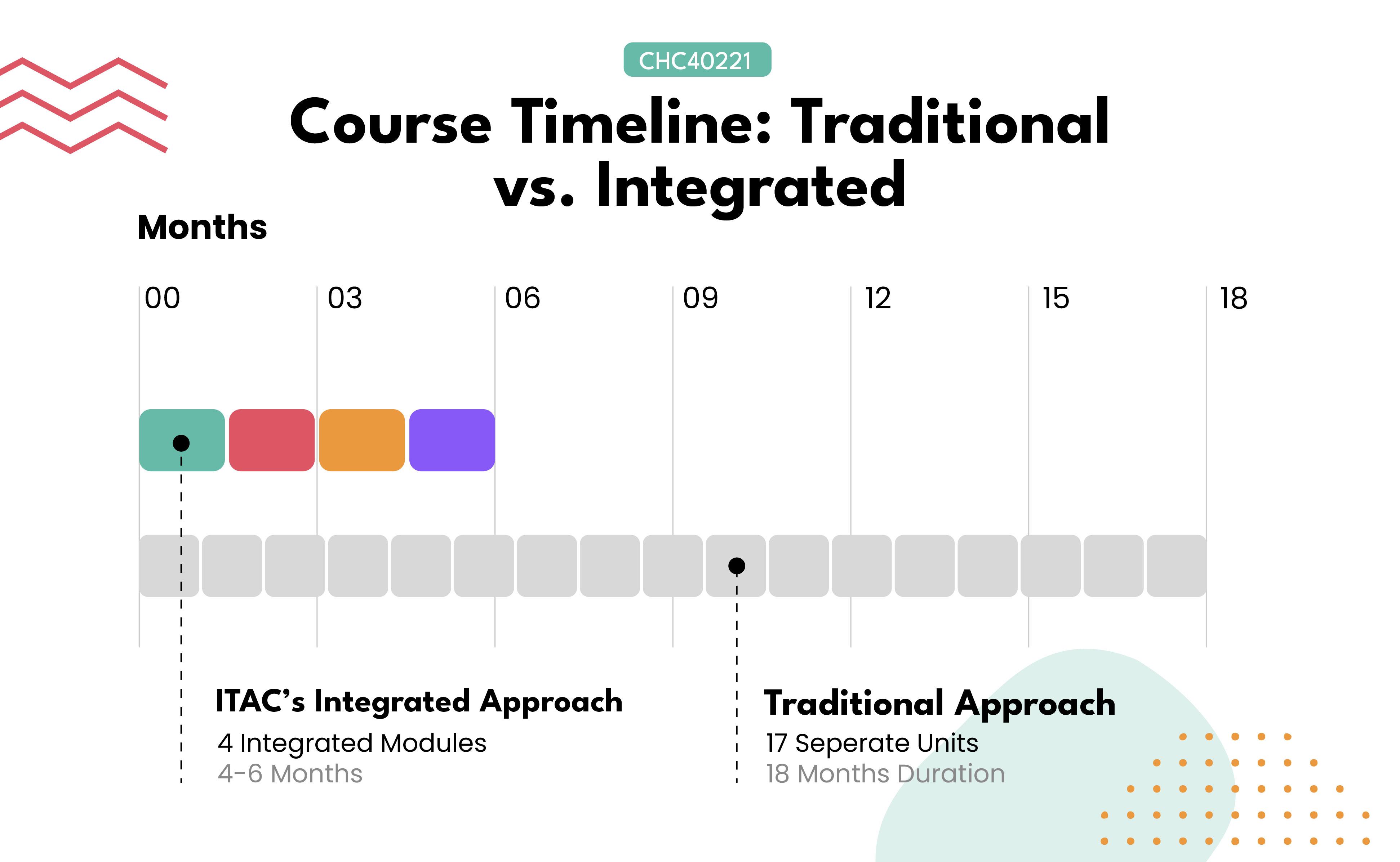
Whether you're a recent school graduate, a parent returning to the workforce, or someone looking to transition into a more meaningful career, this guide will provide the insights and information you need to confidently take the first steps towards becoming a teacher aide in Western Australia.
So, let's dive in and explore how the right teacher aide course can help you unlock your potential and create a brighter future for yourself and the students you'll support!
Navigating This Article
This detailed guide covers everything about the ITAC’s teacher aide courses available in Western Australia.
Quick Links - If you don't need the full article:
- CHC30221 Certificate III in School Based Education Support
- CHC40221 Certificate IV in School Based Education Support
- Education Support Combo - Our Most Popular Option
Key Resources:
Contact Us:
- Phone: 1300 858 191
- Email: info@itac.edu.au
- Contact Page
Below you'll find links to an in-depth exploration of each topic - simply select the area you'd like to learn more about:
Table of Contents
- Is Being a Teacher Aide the Ultimate Family-Friendly Career in Australia?
- What Do Teacher Aides Do in WA Schools?
- Is There Demand for Teacher Aides in WA?
- Teacher Aide Jobs in Western Australia
- What Types of Schools Can I Work at as a Teacher Aide in Western Australia?
- Which Teacher Aide Course in WA is Right for You?
- What Should I Look for When Choosing a Teacher Aide Course in WA?
- Why are Schools Asking for Research-Based Teacher Aide Training?
- Can I Study an Online Teacher Aide Course from Anywhere in WA?
- Becoming a Qualified Teacher Aide: How Long Will It Take You?
- What Do I Need to Know About Work Placement?
- How do I Learn More About Teacher Aide Courses in Western Australia?
- Summing Up Teacher Aide Courses in Western Australia
Is Being a Teacher Aide the Ultimate Family-Friendly Career in Australia?

When it comes to finding a career that perfectly complements family life, it's hard to go past the role of teacher aide. This rewarding profession offers an unbeatable combination of work-life balance, job satisfaction, and the opportunity to make a real difference in your community. It's no wonder that so many parents, especially mothers, are flocking to teacher aide courses to kickstart their careers in education support.
Let's explore some of the key reasons why working as a teacher aide might just be the ultimate family-friendly job in Australia:
- School-Friendly Hours: As a teacher aide, your work day typically starts around 8:30 am and wraps up by 3 pm, giving you plenty of time for school drop-offs and pick-ups. No more rushing to after-school care or relying on grandparents to fill the gap - you'll be there for your kids when they need you most.
- Generous Holidays: Imagine having up to 12 weeks of holidays per year, perfectly aligned with your children's school breaks. That's the reality for teacher aides in Australia. You'll have ample time for family getaways, relaxing staycations, or just enjoying quality time together without the stress of juggling work commitments.
- Leave Work at Work: One of the best things about being a teacher aide is that when the school day ends, so does your work. No more bringing projects home or answering emails late into the night. You can give your full attention to your family, knowing that you've made a positive impact during your workday.
- Competitive Pay: Teacher aides in Australia enjoy competitive hourly rates, with many earning upwards of $40 per hour. When you factor in the family-friendly hours and extensive holidays, it's a financially rewarding career that allows you to contribute to your household income without sacrificing family time.
- Collaborative Environment: As a teacher aide, you'll work closely with teachers and other support staff, fostering a strong sense of teamwork and community. This collaborative environment not only makes the workday more enjoyable but also provides valuable opportunities for professional growth and skill development.
- Variety and Flexibility: No two days are the same when you're a teacher aide. From supporting literacy and numeracy development to assisting with hands-on learning activities, you'll have the opportunity to use your skills and creativity in diverse ways. This variety keeps the job engaging and rewarding as you adapt to meet the unique needs of each student.
- Community Impact: Perhaps most importantly, working as a teacher aide allows you to make a profound difference in the lives of young people in your community. You'll play a crucial role in supporting students' academic, social, and emotional growth, helping to shape the next generation of leaders and changemakers. It's a legacy you can be proud of, both as a professional and as a parent.
But don't just take our word for it. Here's what some of our teacher aide graduates have to say about how the career has transformed their family life:
"Becoming a teacher aide was the best decision I ever made for my family. I get to be there for my kids when they need me, while still contributing financially and doing work that I love. It's the perfect balance." - Sarah, mum of two and teacher aide graduate from Albany.
"I never thought I'd find a career that would allow me to be so present for my children, but working as a teacher aide has made it possible. The holidays are a game-changer, and I love that I can leave work behind at the end of the day and focus on my family." - Ali, mother of three and teacher aide graduate from Perth.
If you're ready to embark on a career that combines the best of both worlds - meaningful work and family-friendly benefits - then a teacher aide course could be your launchpad to success. With the right qualification and a passion for making a difference, you'll be well on your way to securing your dream job in education support.
So why wait? Start exploring teacher aide courses today, and take the first step towards a brighter future for yourself and your family. Your perfect work-life balance awaits!
What Do Teacher Aides Do in WA Schools?
When you complete a teacher aide course in Western Australia, you'll be prepared to take on a wide range of responsibilities that support student learning and wellbeing. Let's dive into the day-to-day tasks you might encounter as a teacher aide, also known as an Education Assistant (EA), in WA schools.
Supporting Literacy and Numeracy Development
One of the primary roles of teacher aides is to work alongside classroom teachers to support students' foundational skills in reading, writing, and mathematics. This might involve:
- Working one-on-one or with small groups to provide targeted literacy and numeracy interventions
- Using evidence-based strategies learned in your teacher aide course, such as explicit instruction, modelling, and guided practice, to help students grasp key concepts
- Preparing hands-on learning materials and resources to engage students and reinforce their understanding
- Monitoring student progress and providing regular feedback to teachers to inform lesson planning
Case Study: Sophia's Story
Sophia, a recent graduate of a CHC40221 Certificate IV in School Based Education Support teacher aide course, secured a position at a primary school in Perth's northern suburbs. With a passion for helping struggling readers, Sophia was thrilled to put her new skills into practice.
Each morning, Sophia leads a small group of Year 2 students through a structured reading program. Drawing on the evidence-based strategies she learned in her teacher aide course, Sophia uses a mix of phonics instruction, guided reading, and comprehension activities to help her students develop confidence and fluency.
Throughout the day, Sophia works closely with the classroom teacher to identify students who need additional numeracy support. She designs hands-on activities using manipulatives to help these students build their understanding of key mathematical concepts.
By applying the knowledge gained in her teacher aide course with ITAC and working collaboratively with the teaching team, Sophia plays a crucial role in boosting her students' literacy and numeracy skills. Her targeted interventions and engaging support make a real difference in her students' learning journeys.
Implementing Inclusive Education Practices

As more WA schools embrace inclusive education, teacher aides are increasingly called upon to support students with disabilities, learning difficulties, and additional needs in mainstream classrooms. A recognised and reputable teacher aide course equips you with the skills to:
- Adapt learning materials and activities to cater to individual student needs
- Use assistive technologies to support student participation and engagement
- Implement positive behaviour support strategies to promote a conducive learning environment
- Collaborate with specialist staff, such as occupational therapists or speech pathologists, to provide holistic support
Case Study: Rhianon's Journey
Rhianon, a former hairdresser, decided to pursue a career change by enrolling in a dual qualification teacher aide course (CHC30221 Certificate III and CHC40221 Certificate IV in School Based Education Support) with ITAC. During her studies, Rhianon developed a keen interest in supporting students on the autism spectrum.
Now employed at a high school in Perth's southern suburbs, Rhianon works closely with a Year 8 student who has autism. Drawing on the inclusive education strategies covered in her teacher aide course, Rhianon implements a range of supports to help her focus students thrive.
These include using visual schedules to provide structure and predictability, breaking down complex tasks into manageable steps, and incorporating Oliver's special interests into learning activities. Rhianon also works closely with her teachers to modify assessments and ensure that lesson content is accessible.
By putting his teacher aide course knowledge into practice, Rhianon helps create an inclusive learning environment where her students can flourish academically and socially. Her commitment to understanding and meeting her student’s unique needs exemplifies the vital role teacher aides play in supporting diverse learners.
Building Positive Relationships
Teacher aides are often the staff members students turn to for guidance, support, and encouragement. Building strong, positive relationships with students is a key aspect of the role. In your teacher aide course, you'll learn strategies for:
- Creating a welcoming and inclusive classroom environment
- Using positive reinforcement to encourage desired behaviours and learning habits
- Communicating effectively with students of different ages, backgrounds, and abilities
- Supporting students' social-emotional development and wellbeing
These interpersonal skills, honed through your teacher aide course and on-the-job experience, allow you to become a trusted source of support for students as they navigate the challenges of school life.
Assisting with Administrative Tasks
In addition to their direct student support roles, teacher aides in WA schools often assist with various administrative tasks to keep the classroom running smoothly. These might include:
- Preparing teaching materials and resources
- Displaying student work and updating bulletin boards
- Supervising students during recess or lunch breaks
- Assisting with record-keeping and data entry
While these tasks may seem minor, they contribute significantly to the overall functioning of the classroom and free up teachers to focus on lesson planning and instruction.
Supporting Extracurricular Activities

Many teacher aides in WA also support students' learning and development outside the traditional classroom setting. After completing your teacher aide course, you may find yourself:
- Assisting with school excursions and camps
- Supervising lunchtime clubs or activities
- Supporting students' participation in sports, music, or arts programs
- Facilitating community outreach projects or service learning initiatives
By getting involved in these extracurricular activities, you'll have the chance to build deeper connections with students and contribute to their holistic development.
When you study a teacher aide course with a reputable provider like ITAC, you'll graduate with the practical skills, theoretical knowledge, and confidence to excel in these diverse roles. From providing targeted academic support to fostering inclusive learning environments, you'll be equipped to make a tangible difference in the lives of WA students.
Case Study: Melissa - From Retail Manager to Education Rockstar
Melissa, a dedicated 38-year-old mother of two girls aged 6 and 3, had spent over two decades climbing the ranks in retail, eventually reaching the position of Store Manager. Despite her success, Melissa found herself yearning for a more fulfilling career that aligned with her passion for supporting children's learning and development.
Inspired by her rewarding experiences volunteering at her daughter's school, Melissa made the life-changing decision to enrol in an accredited teacher aide course and selected the CHC40221 Certificate IV in School Based Education Support. With her family's support and a commitment to allocating dedicated study time each week, Melissa dove headfirst into her new learning journey.
Throughout her teacher aide course, Melissa discovered a natural talent for building positive relationships with students. Her warm, approachable demeanour and knack for using positive reinforcement strategies, honed through her retail experience and course learnings, quickly made her a favourite among the children she supported during her practical placement at a local primary school in the Perth Hills area.
Melissa's supervising teacher was particularly impressed with her ability to connect with a shy Year 1 student named Liam. By taking the time to learn about Liam's interests, using praise and encouragement, and creating a safe, inclusive learning environment, Melissa helped Liam come out of his shell and engage more actively in classroom activities.
In addition to her relationship-building skills, Melissa demonstrated a keen eye for organisation and a proactive approach to assisting with administrative tasks. Drawing on her retail management experience, she efficiently prepared learning materials, maintained tidy classroom displays, and kept meticulous records of student progress. Her initiative in streamlining daily routines and resource management freed up valuable time for the teaching staff to focus on lesson planning and individualised student support.
Melissa's contributions extended beyond the classroom walls. Recognising the importance of extracurricular activities in fostering students' holistic development, she enthusiastically volunteered to support the school's lunchtime gardening club. Melissa's nurturing presence and genuine interest in the students' horticultural projects created a welcoming space where children could explore their passions, develop new skills, and form friendships.
As Melissa neared the end of her teacher aide course, her placement school seized the opportunity to offer her a permanent part-time position. The leadership team recognised the immense value Melissa brought to the school community through her ability to forge strong connections with students, her organisational prowess, and her dedication to supporting learning in and out of the classroom.
Today, Melissa is a cherished member of the school staff, known for her infectious positivity, unwavering commitment to student wellbeing, and versatile skill set. Her journey from retail manager to education rockstar exemplifies the transformative power of following one's passion and investing in quality teacher aide training.
For Melissa, the decision to pursue a teacher aide course not only unlocked a new career path but also provided the flexibility and work-life balance she craved as a mother of young children. With school hours and holidays aligned with her own children's schedules, Melissa can now be fully present for her family while making a meaningful difference in the lives of countless students.
Melissa's story serves as an inspiration to other career-changers and busy parents who may be hesitant to take the leap into education support. As Melissa continues to thrive in her new role, she reflects on the profound impact her teacher aide course has had on her personal and professional life. Armed with the knowledge, skills, and confidence gained through her studies, she looks forward to many more years of making a positive difference in the lives of young learners, one relationship at a time.
To Conclude
As a teacher aide in Western Australia, no two days are the same. Whether you're leading a small group literacy intervention, supporting a student with additional needs to access the curriculum, or organising resources for an engaging science lesson, your role is both challenging and incredibly rewarding.
By choosing to pursue a teacher aide course with a provider that focuses on evidence-based practices and practical skill development, you'll be well-prepared to navigate the dynamic world of education support. Your teacher aide course will provide the foundation, and your passion, creativity, and dedication will guide your journey as an integral member of the school community.
So, if you're ready for a career that combines a love for learning, a commitment to student wellbeing, and the opportunity to make a real difference, a teacher aide course is your launchpad. Embrace the challenges, celebrate the triumphs, and get ready to play a vital role in shaping the future of Western Australia's students.
Is There Demand for Teacher Aides in WA?

As the education landscape in Western Australia continues to evolve, the demand for skilled education assistants who have completed quality teacher aide training is on the rise. Graduates of reputable teacher aide courses, like those offered by ITAC, are finding themselves well-positioned to secure rewarding roles in a variety of school settings across the state.
Several key factors are driving this strong employment outlook for professionals with teacher aide qualifications in WA:
- Growing student enrolments: As WA's population continues to expand, particularly in Perth and surrounding areas, more schools are opening their doors to accommodate the influx of students. This growth directly translates to an increased need for education support staff with relevant teacher aide training to ensure every learner receives the individualised attention they need to thrive.
- Focus on inclusive education: WA schools are embracing inclusive education practices, which means students with disabilities, learning difficulties, and additional needs are being supported within mainstream classrooms. Teacher aides play a crucial role in facilitating these students' participation and learning alongside their peers, leading to a higher demand for professionals who have completed teacher aide courses with a focus on inclusive education, such as ITAC's CHC40221 Certificate IV in School Based Education Support.
- Recognition of diverse learning needs: Today's classrooms are characterised by a wide spectrum of learning needs, and schools are prioritising targeted support for students who may require extra assistance. This includes those with conditions like autism spectrum disorder (ASD), attention deficit hyperactivity disorder (ADHD), and specific learning difficulties. Teacher aide course graduates who have specialised training in supporting these diverse learners are highly sought-after in WA schools.
- Emphasis on early intervention: Research consistently highlights the importance of early intervention in achieving the best outcomes for students with additional needs. Many WA primary schools are investing in EAs who have completed relevant teacher aide training to work closely with students in the early years, helping to build essential foundational skills and address any emerging challenges.
So, what does this demand look like in practice? Let's explore the experiences of three ITAC teacher aide course graduates who have successfully launched their careers as teacher aides in WA.
Annabelle's Story: Thriving in a Primary School Setting
Annabelle, a dedicated mother of two from Joondalup, recently completed ITAC's introductory teacher aide course – CHC30221 Certificate III in School-Based Education Support. With her children now in high school, Annabelle felt ready to pursue her long-held passion for working with young learners.
After finishing her placement as part of her teacher aide training, Annabelle was thrilled to be offered a permanent part-time position supporting a Year 1 classroom. Her role involves working closely with the teacher to deliver engaging lessons, providing one-on-one support to students who need extra assistance, and contributing to a positive, inclusive learning environment.
Annabelle finds immense satisfaction in watching her students grow in confidence and ability each day. She particularly enjoys supporting children who may be struggling with literacy or numeracy, using the strategies she learned in her ITAC teacher aide course to break down concepts and make learning more accessible.
While balancing work and family life can be challenging at times, Annabelle appreciates the family-friendly hours and school holidays that come with being a teacher aide. She knows she's making a real difference in her students' lives while still being present for her own children.
Liliana's Journey: Supporting Secondary Students
With a background in youth work, Liliana from Thornlie knew she wanted to transition into a more education-focused role. She enrolled in ITAC's CHC40221 Certificate IV in School Based Education Support teacher aide course, drawn to the training program's emphasis on supporting students with additional needs.
During her teacher aide studies, Liliana completed her placement at a nearby high school, working primarily with students in the school's inclusive education program. She quickly discovered a passion for supporting teenagers with autism spectrum disorder, using her newfound knowledge gained through her teacher aide training in social stories, visual supports, and sensory strategies to help them engage more fully in their learning.
Impressed by her dedication and skillset, the school offered Liliana a full-time position as an education assistant in their specialist autism program. Now, she works collaboratively with teachers, therapists, and families to implement individualised support plans and create an inclusive, understanding environment for her students.
Liliana finds great meaning in empowering her students to overcome challenges and celebrate their unique strengths. She's grateful for the specialised teacher aide training she received through ITAC, which prepared her to make a profound impact in the lives of these young people.
Kelly's Experience: Flexibility Across Primary and Secondary
As a mature-age student living in the rural town of Gidgegannup, Kelly was initially unsure about the career opportunities available to her locally. However, after completing ITAC's Education Support Combo teacher aide course, which combines the Certificate III and IV qualifications, she found herself in high demand among the area's schools.
Kelly's first role was a part-time position supporting primary school students with literacy difficulties. She worked closely with small groups, using evidence-based strategies learned in her teacher aide training to help them develop their reading, writing, and comprehension skills. The joy on her students' faces as they began to read independently was incredibly rewarding.
When a neighbouring high school reached out seeking an education assistant to support students with disabilities, Kelly's diverse skillset gained through her comprehensive teacher aide course made her the perfect candidate. She now splits her time between the two schools, relishing the variety and challenge of working with different age groups and needs.
Despite the geographical limitations of her location, Kelly has found that the demand for qualified teacher aide course graduates is consistently strong. With several schools in the area and a growing recognition of the importance of individualised learning support, she feels confident in the long-term prospects of her chosen career.
A Bright Future for Aspiring Teacher Aides
Annabelle, Liliana, and Kelly's experiences showcase just a few of the many pathways available to teacher aide course graduates in Western Australia. Whether you're drawn to supporting early years students, have a passion for inclusive education, or want the flexibility to work across different school settings, the demand for professionals with teacher aide training is undeniable.
By completing a high-quality, nationally recognised teacher aide course through a respected provider like ITAC, you'll be well-equipped to seize the diverse opportunities the WA education support sector has to offer. With the right teacher aide qualifications, a commitment to ongoing learning, and a desire to make a difference, you'll be poised for a fulfilling career empowering students of all abilities to reach their full potential.
As WA's education landscape continues to evolve, one thing remains constant: the vital role of skilled education assistants in supporting inclusive, engaging learning experiences for every student. Embrace the exciting opportunities that await, knowing that your contributions as a well-trained teacher aide course graduate will help shape a brighter future for generations to come.
Teacher Aide Jobs in Western Australia

Are you considering a career as a teacher aide in Western Australia? With the right qualifications and approach, you can turn your passion for supporting students into a fulfilling and rewarding job. This guide will walk you through the key steps to landing your perfect education assistant role in WA, starting with the most important factor: choosing the right teacher aide course.
Lay the Foundation with a Quality Teacher Aide Course
Having a nationally recognised qualification is essential for aspiring teacher aides. WA schools are seeking candidates who demonstrate a strong commitment to professional development and bring a diverse set of skills to the classroom.
The two most common qualifications for teacher aides in Western Australia are:
- CHC30221 Certificate III in School Based Education Support
- CHC40221 Certificate IV in School Based Education Support
While the Certificate III provides a solid foundation, many schools now prefer or require the Certificate IV, particularly for roles supporting students with additional needs. By investing in a higher-level qualification, you'll open doors to a broader range of job opportunities and showcase your dedication to providing exceptional student support.
When researching teacher aide courses, look for providers that offer:
- Experienced trainers with deep knowledge of the WA education system
- Opportunities for practical, hands-on learning in real school settings
- Flexible study options to suit your lifestyle and commitments
- Strong connections to schools and education networks in your area
Remember, the quality of your teacher aide course will directly impact your job readiness and employability. Take the time to find a provider that aligns with your career goals and learning style, and don't hesitate to ask questions about their course content, trainer expertise, and graduate outcomes.
By laying a strong foundation through a nationally recognised teacher aide course, you'll be well on your way to turning your career dreams into reality. In the next section, we'll explore how to make the most of your qualification and stand out to potential employers in the WA education sector.
Relief Teaching: A Valuable Starting Point
For many teacher aide course graduates in WA, relief work (also known as casual or supply work) serves as an excellent entry point into the profession. This involves stepping in for permanent staff members who are absent due to illness, professional development, or other reasons. While not all graduates secure employment at their placement school, relief work offers several key benefits:
- Gaining diverse experience across different school settings, year levels, and student needs
- Allowing schools to get to know you and assess your fit with their culture and priorities
- Building your confidence and professional reputation within the WA education community
- Opening doors to longer-term contract or permanent positions as they become available
To increase your chances of securing relief work and other teacher aide positions, it's smart to apply to multiple WA schools in your local area. This might include a mix of primary schools, high schools, education support centres, and specialist programs in government, independent, and Catholic sectors.
Express your enthusiasm for working with students of all ages and abilities, highlighting the specific skills you gained during your teacher aide course. Many schools will keep your resume on file and reach out when opportunities arise, so don't be discouraged if you don't hear back immediately.
Tip: Showcasing Your Strengths
Whether you're applying for relief work, a fixed-term contract, or a permanent position, it's crucial to present yourself as a standout candidate. Take the time to tailor your application to each school, demonstrating your understanding of their unique needs and values.
WA schools are actively seeking graduates who can demonstrate a strong understanding of current research and evidence-based strategies. Throughout your job search and early career, look for opportunities to showcase your expertise and make a tangible difference in the lives of the students you support.
Throughout your teacher aide course, you likely developed a range of valuable skills that schools are actively seeking, such as:
- Implementing evidence-based strategies to support literacy, numeracy, and overall learning
- Applying positive behaviour support techniques to create inclusive classroom environments
- Collaborating effectively with teachers and support staff to meet diverse student needs
- Adapting to different educational settings and student profiles with flexibility and empathy
By highlighting these strengths and the knowledge you gained during your studies, you'll demonstrate your readiness to make a positive impact from day one.
Finding Your Ideal Role
The journey from graduate to employed teacher aide can vary significantly depending on factors like location, school sector, and timing. Some graduates may secure a permanent role shortly after completing their course, while others may spend a year or two in a mix of relief and contract positions before landing an ongoing job.
The key is to remain open-minded, responsive to feedback, and committed to continuous improvement. Every school you work with, whether for a day or a semester, is an opportunity to grow your skills, expand your network, and build your reputation as a dedicated education professional.
Take the First Step Today

Imagine the joy of helping a struggling student finally grasp a challenging concept or seeing a quiet child come out of their shell. As a teacher aide, you'll have countless opportunities to create these magical moments in WA classrooms. With the right training, you'll be ready to support diverse learners, from energetic primary school children to determined teens. So why wait? Enrol in a teacher aide course today and start turning your passion for education into a fulfilling career. The students of Western Australia need caring, skilled professionals like you in their corner.
Pro Tip: You may need to broaden your horizons and look for work in multiple schools to begin with. We have found that our students are often surprised at how much they enjoy working in schools that they originally didn't consider. Don't discount education support centres (ESC), high schools, and schools that are further away than you would have liked. Many students discount high schools because they are intimidated by teenagers. This belief is unfounded, and high schools are far from the environment that many imagine.
Case Study 1: Emma - From Corporate Executive to Classroom Superstar
Emma, a 32-year-old mother of four from Secret Harbour, had spent her career climbing the corporate ladder as an executive assistant at an ASX-listed company. However, after the birth of her youngest child, she realised her true passion lay in helping young learners in her community rather than crunching numbers in Excel.
Enrolling in a nationally recognised teacher aide course, Emma quickly discovered that many of her existing skills were transferable to the classroom setting. Her technology proficiency, honed through years of corporate work, proved invaluable in supporting students in a special needs class where iPads were a key learning tool.
During her placement as part of the teacher aide course, Emma's natural aptitude for education support shone through. Her supervising teacher was particularly impressed with Emma's ability to manage a group of students with challenging behaviours, drawing on the instructional strategies and positive behaviour support techniques covered in her studies.
By the end of her placement, the school was so impressed with Emma's performance that they offered her a permanent position working across several Year 3/4 classes. Emma's journey from the boardroom to the classroom is a testament to the power of a quality teacher aide course in launching a rewarding new career.
Case Study 2: Tenille - From Heavy Industry to Satisfaction in Education Support
Tenille's path to becoming a teacher aide was a winding one. Originally from Sydney, she had spent several years working in the transport industry before moving to Busselton in the southwest region of WA. Seeking a career change that would allow her to make a difference in her new community, Tenille enrolled in a CHC40221 Certificate IV in School Based Education Support.
Armed with her newly minted qualification from Australia's most recognised teacher aide course, Tenille quickly found opportunities for casual relief work in several local schools. Her ability to quickly build rapport with students and her flexibility in adapting to different classroom environments made her a sought-after relief staff member.
Over time, Tenille began to take on longer contracts, including a 12-month position supporting a Year 5 class. The stability of these contracts, combined with the satisfaction of watching her students grow and develop, confirmed that Tenille had found her true calling.
Though she initially had to travel a bit further from home for work, Tenille's growing reputation as a skilled and dedicated education support professional soon opened up opportunities at schools closer to Busselton. She recently accepted a permanent position at a primary school just a short drive from her home, providing a perfect balance of career fulfilment and work-life harmony.
Case Study 3: Maria - From Legal Secretary to Special Needs Support Champion
Maria, a resilient 45-year-old mother of two, embarked on a transformative journey when she moved from the Philippines to Perth, Western Australia, in search of new opportunities and a better life for her family. With a background in legal administration, Maria initially found work as a legal secretary in a bustling Perth law firm. While she excelled in her role, she couldn't shake the feeling that her true calling lay elsewhere.
Over the years, Maria transitioned through various administrative positions across different industries, from healthcare to hospitality. Despite her success in each role, she yearned for a career that would allow her to make a more meaningful impact on the lives of others, particularly children.
The turning point came when Maria's own children started attending a prestigious primary school in Perth's leafy western suburbs. As an active and engaged parent, Maria volunteered regularly at the school, assisting with classroom activities and school events. It was during this time that she found herself drawn to the school's inclusive education program and the dedicated support staff who worked tirelessly to ensure every student had the opportunity to thrive.
Determined to stand out in a competitive job market and equip herself with the necessary skills to excel in the field, Maria enrolled in the Education Support Combo course through a reputable training provider. Balancing her studies with her family responsibilities and part-time work, Maria dedicated herself to mastering the practical strategies and theoretical knowledge needed to support students with diverse needs.
As part of her accredited teacher aide course, Maria completed a practical placement at her children's school, where she had the opportunity to work alongside experienced education support professionals and apply her newly acquired skills in a real classroom setting. Her natural ability to connect with students, combined with her deep understanding of inclusive education practices, quickly set her apart as a valuable member of the team.
When a highly sought-after full-time position opened up in the school's special needs support unit, Maria's impressive resume, bolstered by her Education Support Combo qualification, caught the attention of the hiring committee. Despite fierce competition from other candidates, Maria's dedication, practical experience, and specialised teacher aide training shone through, and she was offered the role.
Today, Maria is a highly respected member of the school's education support team, known for her unwavering commitment to creating inclusive learning environments and championing the needs of students with disabilities and learning difficulties. Her journey from legal secretary to special needs support champion is a testament to the transformative power of following one's passion and investing in quality education and training.
Maria's story serves as an inspiration to other career-changers and mature-aged learners who may be considering a move into the rewarding field of education support. Her success demonstrates that with the right qualifications, practical experience, and a genuine passion for making a difference, it is possible to forge a fulfilling career in supporting the diverse needs of students in even the most competitive school environments.
As Maria continues to thrive in her role and make a lasting impact on the lives of her students, she is grateful for the skills and knowledge gained through her teacher aide course at ITAC. Her journey highlights the value of investing in specialised training that not only sets candidates apart in the job market but also equips them with the tools to effect meaningful change in the lives of young learners.
What Types of Schools Can I Work at as a Teacher Aide in Western Australia?

You've decided to start a teacher aide course - a fantastic choice that will open doors to a rewarding career supporting students' learning and growth. But where exactly can you work after completing your teacher aide course? The education landscape in Western Australia is delightfully diverse, with a range of school types catering to different student needs, philosophies, and community contexts. Let's explore the key categories of schools you might find yourself working in:
Government Schools: The Backbone of WA Education
Government schools form the core of Western Australia's education system. These schools are fully funded and managed by the state and federal governments, providing accessible, high-quality education to students from all walks of life. As a teacher aide in a government school, you'll have the opportunity to support a wide range of students within an inclusive and diverse learning environment.
Some examples of government schools include:
In these schools, you'll work closely with teachers to support the delivery of the Western Australian curriculum, helping students develop essential skills and knowledge across key learning areas. You might find yourself assisting with literacy and numeracy support, working with small groups to reinforce classroom learning, or providing individual support to students with additional needs.
Private Schools
Private schools in Western Australia receive a mix of government funding and private contributions, allowing them a degree of autonomy in their educational approach and specialisation. These schools often have a unique character, which can make them exciting places for teacher aides to work. Imagine being part of a school community that aligns with your values and interests! Some examples of private schools in WA include:
- Faith-Based Schools: Faith-based schools integrate religious teachings and values into the state curriculum, creating a holistic learning environment. Catholic schools, like Francis Jordan Catholic School, are a well-known example, but there are also schools affiliated with other denominations, such as John Wollaston Anglican Community School or Geraldton Christian College. As a teacher aide in a faith-based school, you'll have the opportunity to support students' spiritual growth alongside their academic and social development. It's a chance to make a real difference in young people's lives!
- Independent Schools: Independent schools are a diverse group, ranging from those with alternative educational philosophies to schools with specialised focus areas. Some independent schools, like Parklands School, offer unique learning environments tailored to specific student needs or interests. Others, known as independent public schools, receive government funding but have greater autonomy in their operations and decision-making. Imagine being part of an innovative school community that's pushing the boundaries of traditional education!
- Alternative Schools: Alternative schools, such as Montessori and Steiner schools, offer unique educational approaches that emphasise creativity, self-directed learning, and holistic development. Blue Gum Montessori School is one example, but there are many others across WA. As a teacher aide in an alternative school, you'll have the chance to learn alongside students, exploring new ways of thinking and learning. It's an opportunity to be part of an educational revolution!
With so many exciting school options to explore, there's never been a better time to pursue a career in education support. Imagine the impact you could have on young lives, the relationships you'll build with students and colleagues, and the personal and professional growth you'll experience along the way.
Don't wait – your dream job in a Western Australian school is just a teacher aide course away! Enrol now and take the first step towards a fulfilling career that makes a real difference.
Which Teacher Aide Course in WA is Right for You?
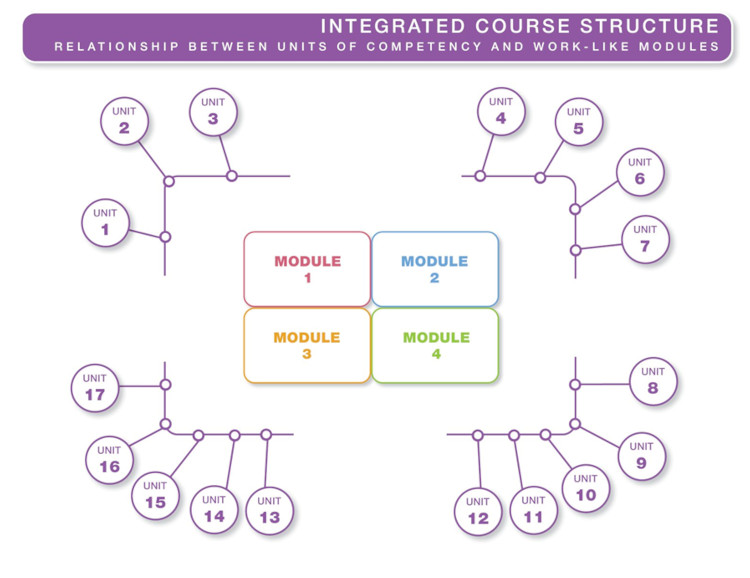
When it comes to choosing the best teacher aide course to launch your career in Western Australia, it's important to understand the key differences between the available qualifications. ITAC offers three nationally recognised programs that cater to a range of learning needs and career goals:
- CHC30221 Certificate III in School Based Education Support
- CHC40221 Certificate IV in School Based Education Support
- Education Support Combo
While all three courses provide a solid foundation for working as a teacher aide in WA schools, they each have distinct focuses and outcomes. Let's explore which option might be the best fit for you.
CHC30221 Certificate III in School Based Education Support
The Certificate III is an excellent entry-level teacher aide qualification for those new to the field of education support. It covers the core skills and knowledge needed to work in mainstream classrooms, such as:
- Supporting student learning and engagement
- Assisting with classroom activities and routines
- Contributing to the health, safety, and wellbeing of students
- Using basic strategies to support positive student behaviour
This course is particularly well-suited for recent school leavers, those who are still developing their English language skills, or individuals who may lack confidence in their academic abilities at higher levels. It provides a gentle introduction to the role of a teacher aide and can serve as a stepping stone to further study.
CHC40221 Certificate IV in School Based Education Support
For those seeking to work with students who have additional needs, the Certificate IV is the preferred qualification. Building on the foundational skills covered in the Certificate III, this course delves into more specialised areas such as:
- Implementing support strategies for students with disabilities, disorders, or learning difficulties
- Facilitating learning experiences that cater to individual student needs
- Supporting the development of literacy and oral language skills
- Collaborating with teachers to create inclusive learning environments
While the Certificate IV is sometimes mistaken as an advanced or specialist qualification, it's important to note that it covers much of the same content as the Certificate III, with an added focus on supporting students with additional needs. In fact, around 90% of teacher aide positions in WA involve working with students who require extra support due to disabilities, learning challenges, or other barriers to learning – hence, graduates of this teacher aide course are highly sought after.
Choosing the CHC40221 Certificate IV in School Based Education Support means you'll be qualified for the vast majority of education support roles in WA schools. It's the ideal path for those who are passionate about making a difference for students with diverse needs and who want job security, higher salary and the confidence of being qualified at the higher level.
Education Support Combo
For the ultimate in flexibility and job readiness, the Education Support Combo is ITAC's most popular and highly recommended program. This innovative course combines both the Certificate III and Certificate IV into one streamlined learning experience, allowing you to gain two nationally recognised teacher aide qualifications in far less time than it would take to complete them separately.
By choosing the Education Support Combo, you'll develop a comprehensive skillset that encompasses all aspects of education support work, from general classroom assistance to targeted support for students with additional needs. You'll graduate from your teacher aide course with the confidence and capabilities to take on any teacher aide role in WA, maximising your employment opportunities.
The combo is an excellent choice for:
- Those who want to save time and money by avoiding studying two separate qualifications
- Individuals looking to make their resume stand out to potential employers
- Career changers who bring valuable life and work experience to the role
- Parents returning to the workforce after raising children
With the Education Support Combo, you'll be qualified for every education support position in WA schools, giving you the flexibility to explore different settings and specialisations as your career progresses.
Making Your Decision
Ultimately, the best teacher aide course for you will depend on your individual goals, experiences, and confidence. If you're just starting out and want to gain a solid foundation in education support, the Certificate III may be the right choice. For those committed to supporting students with additional needs, the Certificate IV will equip you with the specialised skills to succeed.
However, if you're looking to maximise your career opportunities, save time and money, and future-proof your qualifications, the Education Support Combo is the clear winner that most students elect to study. By gaining both the Certificate III and IV in one cohesive program, you'll be ready to make a real difference in any WA classroom.
No matter which path you choose, ITAC's expert trainers, flexible online delivery, and strong industry connections will ensure you graduate job-ready and confident. With the right qualification and a passion for supporting student success, you'll be well on your way to a fulfilling career as an education support professional in Western Australia.
What Should I Look for When Choosing a Teacher Aide Course in WA?

Selecting the right teacher aide course is a significant decision that will shape your learning experience and future career opportunities. To help you make the best choice for your unique circumstances, here are 6 key factors to keep in mind as you explore training options in Western Australia:
1. Do the Trainers Have Experience in WA Schools?
Seek out providers with trainers who have extensive experience working in WA schools. They'll offer valuable insights into the specific needs and expectations of local classrooms, ensuring you graduate with highly relevant skills. Local trainers are a must-have.
2. What Student Support Services Are Available?
Confirm that your chosen provider offers a range of support services, such as live webinars, one-on-one tutorials, and prompt phone and email assistance. These are all standard services these days. Having access to knowledgeable trainers throughout your learning journey can make a significant difference in your success.
3. How Long Does the Course Take to Complete?
Courses that can be completed in around 6 months are ideal for education support, as this is the industry-accepted length. Unit-by-unit courses, where you study each unit individually, can often stretch out to a year or more of study. Look for courses with an integrated structure that allows you to develop skills efficiently.
4. What Kind of Placement Support is Provided?
Practical experience is a cornerstone of any quality teacher aide course. Investigate how each provider supports students during their placement. For example, ITAC visits students on placement even in remote areas of WA, providing valuable face-to-face guidance and support. School visits is another must-have.
5. Does the Provider Have Strong Industry Connections?
Providers with strong industry connections can offer unique advantages. For instance, ITAC trains over 60% of Certificate IV students in WA and has graduates working in nearly every school. This means you'll likely be completing your placement alongside an experienced ITAC alumni who can offer peer support and insights, and who knows our course content.
6. Which Qualification Level Should I Choose?
While the CHC30221 Certificate III in School Based Education Support provides a solid foundation, it's worth considering the CHC40221 Certificate IV or the Education Support Combo – and not all providers offer these higher-level courses. These more advanced qualifications can open more doors for employment (and lead to higher pay), as the vast majority of teacher aide positions in WA now require or prefer a Certificate IV due to its special needs focus.
Summing Up
By carefully evaluating potential teacher aide course providers against these criteria, you'll be well-positioned to make a choice that aligns with your learning style, career goals, and individual needs. Remember, investing in your education is investing in your future - take the time to research your options and select a provider that will support you in becoming the best education support professional you can be.
At ITAC, we're committed to providing aspiring teacher aides with the knowledge, skills, and hands-on experience needed to excel in WA classrooms. Our 6-month integrated courses, delivered by experienced WA trainers and supported by extensive support and placement assistance, are designed to set you up for success.
If you have any questions about our teacher aide courses or how we can help you achieve your aspirations, please don't hesitate to reach out.
Why are Schools Asking for Research-Based Teacher Aide Training?

In today's dynamic educational landscape, schools are increasingly seeking teacher aides who have completed training grounded in current research and evidence-based practices. At ITAC, we are committed to delivering teacher aide courses that reflect the latest findings on effective strategies for supporting student learning and wellbeing.
What Does "Research-Based" Mean in Teacher Aide Training?
When we say our teacher aide courses are "research-based," we mean that the content, strategies, and approaches we teach are informed by rigorous academic research from Australia and around the world. Our expert course developers conduct extensive reviews of the latest studies, theories, and evidence-based practices in the field of education support to identify what really works in real classrooms.
Examples of Research-Based Strategies in ITAC Courses
Our teacher aide training programs cover a wide range of proven techniques, such as:
- Instructional strategies like explicit teaching, scaffolding, and modelling
- Cognitive and metacognitive skill-building techniques
- Positive behaviour support and classroom management approaches
- Evidence-based literacy and numeracy interventions
- Inclusive practices for students with disabilities or additional needs
- Effective use of assistive technologies and adaptive resources
By grounding our courses in research, we ensure that ITAC graduates are well-prepared to make a tangible difference in students' lives. Teacher aides who complete research-based training bring a wealth of up-to-date, practical strategies to their roles, enhancing the quality of support provided in schools.
The Benefits of Choosing a Research-Based Teacher Aide Course
When you choose a research-based teacher aide course with ITAC, you're investing in your ability to:
- Implement proven strategies that enhance student learning and engagement
- Adapt to the unique needs of diverse learners, including those with disabilities or additional needs
- Collaborate effectively with teachers and support professionals, using a shared understanding of evidence-based practices
- Contribute to a positive, inclusive learning environment that fosters growth and success for all students
- Continuously update and refine your skills as new research emerges, staying at the forefront of best practices in education support
Our passionate trainers will guide you in translating research into practice, empowering you to make a lasting, positive difference in the lives of the students you support.
Be Part of the Research-Based Education Support Movement
At ITAC, we're raising the bar for the teacher aide profession through our research-based courses. By equipping our graduates with the same evidence-based strategies used by qualified teachers, we're helping to redefine the role of education support professionals. Join us in building a stronger, more inclusive education system where teacher aides are recognised as highly skilled, integral members of the school community.
What Does Research-based mean in Practice?
Let’s take a visual tour of some of the research-based techniques and strategies that you will learn with ITAC, and how they are put to use in the real world:

Above: ITAC students learn best practice, research-based skills and strategies such as those demonstrated above – which strategies do you think this teacher aide is implementing? Scaffolding, modelling, feedback, questioning, rapport building, linking to existing knowledge, elaboration, guided or shared learning, think alouds, team teaching, games and quizzes, formative assessment, reflective practice, learning styles or maybe differentiated instruction? She might be using all of these strategies!

Above: Study a best practice, research-based teacher aide course in WA and learn a range of valuable and essential teaching skills, techniques, and strategies that will make you an invaluable member of your school community. Only at ITAC will you study strategies and techniques such as reading and writing support strategies, formative assessment, metacognitive skills, individual education plans, explicit instruction, re-reading, repeated reading, intervention and remedial instruction, questioning techniques, reflective practice, setting goals, guided learning, shared learning, scaffolding, modelling and many others.

Above: As you can see in this image, teacher aides work closely with students for most of the day. They predominantly work with students one-on-one, in pairs, or in small groups of 3-6. They do not teach the whole class, as that is the role of the teacher. Teacher aides in Australian schools are expected to implement a range of teaching and learning strategies such as scaffolding, modelling, worked examples, explicit instruction, whole-part-whole learning, setting goals and many others. These basic strategies are the bread and butter of all teacher aides. You will only learn these key strategies, and many others, with the leader in teacher aide training in Western Australia: ITAC.

Above: Studying with a reputable provider in order to learn best practice skills and strategies means you will have the ability to take on higher-level responsibilities e.g. running a program with a group of students (as pictured). Only at ITAC will you learn best practice strategies based on international research, such as one-on-one instruction, cognitive load theory, motivational strategies, scaffolding, modelling, shared learning, guided learning, and many others.
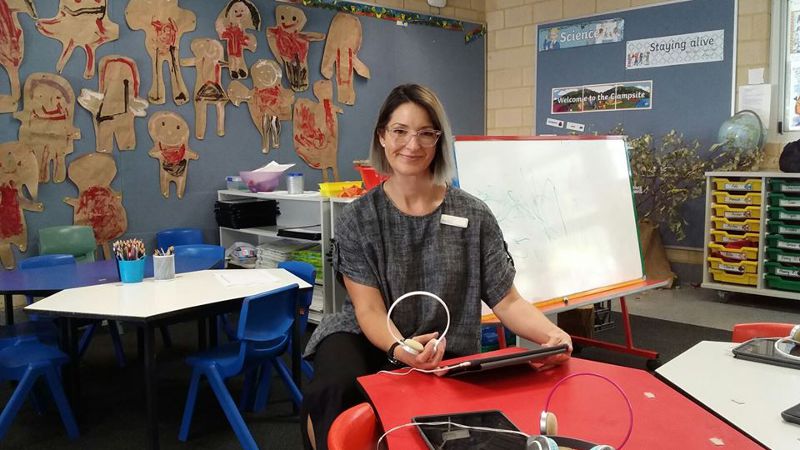
Above: Many classrooms take advantage of technology and use it throughout the day in almost all lessons. This is particularly the case in special needs classes. By implementing research-based, best practice teaching and learning strategies, students are more likely to be offered a position in the school where they undertake placement. You too can get your career up and running and begin the life-long challenge of educating the next generation of leaders by enrolling in Australia’s best teacher aide course: only at ITAC.
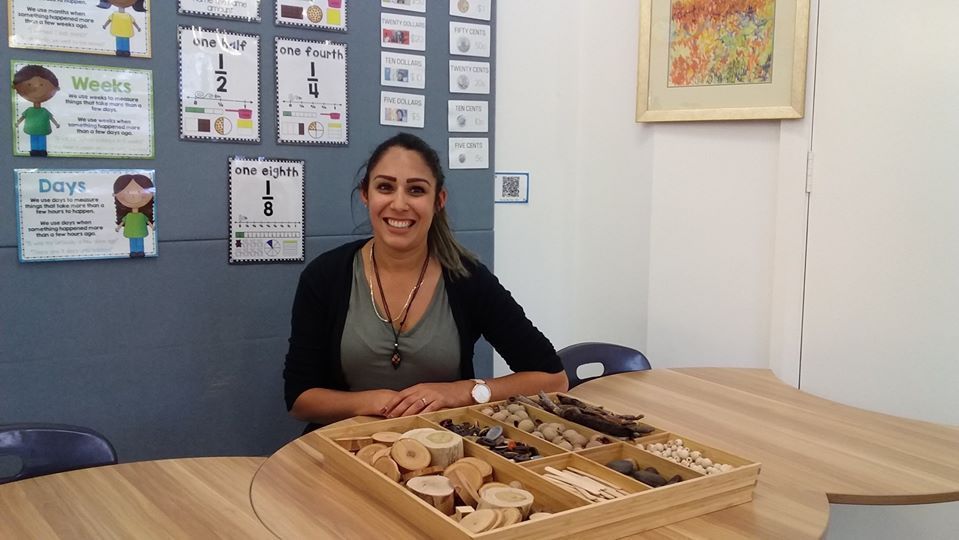
Above: After demonstrating research-based, best practice teaching and learning strategies, this student passed her final assessment. Teacher aides spend most of their working day supporting student development, such as with props, equipment and hands on activities as pictured here. Could this be you in a few months?

Above: Where do you think your skills would be best utilised? Pictured above is an ITAC graduate helping students to develop their reading and writing skills via a creative art activity. You too could be part of this exciting, stable and rewarding sector by enrolling in a research-based, best practice teacher aide course with Australia’s leading provider: ITAC.
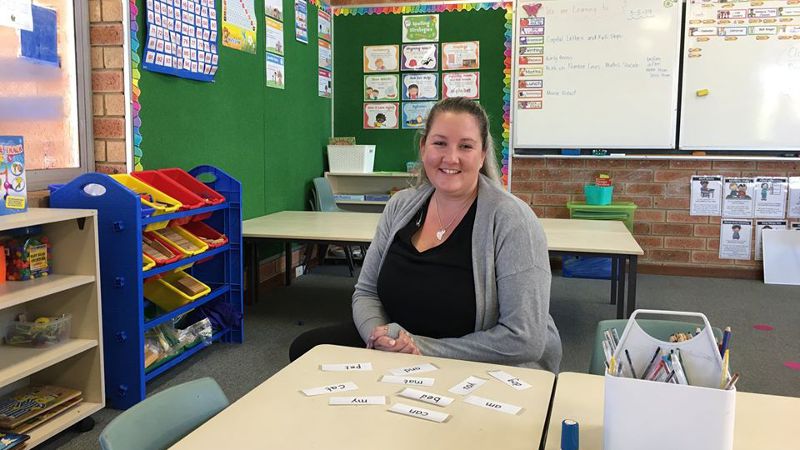
Above: Supporting the development of reading and writing skills begins in early childhood with phonics and whole-word learning. Pictured above, an ITAC student from the CHC40221 Certificate IV in School Based Education Support showcases some of the resources and activities they have been using to develop students’ phonemic awareness (knowledge of the sounds of English). By enrolling in a quality teacher aide course in WA, and by learning and practising best practice teaching and learning strategies and skills, this student was offered work at the school where she completed her work placement. Could this be you in a few months from now?
Can I Study an Online Teacher Aide Course from Anywhere in WA?

ITAC offers all of its nationally recognised teacher aide courses, including the popular CHC30221 Certificate III in School Based Education Support and CHC40221 Certificate IV in School Based Education Support, through a flexible online delivery mode. This means that no matter where you live in WA, from the bustling streets of Perth to the remote outback towns, you can gain the skills and qualifications needed to launch a rewarding career supporting students in schools.
But here's the thing - online learning with ITAC is far from a solitary, unsupported experience. When you enrol in one of our online teacher aide courses, you'll benefit from:
- Regular live tutorials and webinars led by experienced trainers who have worked extensively in WA schools. These interactive sessions allow you to deepen your understanding, ask questions, and learn from real classroom scenarios.
- Proactive trainer support, with your dedicated trainer reaching out frequently via phone, email, and online forums to provide guidance and feedback and to ensure you're on track with your studies. You'll feel consistently supported throughout your learning journey.
- Engaging learning materials that go beyond just static PDFs. Our online courses feature interactive e-learning modules, video content, case studies, and practical activities to help you develop real-world skills that WA schools are looking for.
- Opportunities to connect with fellow students across WA through discussion forums and virtual study groups. You'll become part of a vibrant learning community where you can share ideas, experiences, and support one another.
At ITAC, we understand that the quality of your online course directly impacts your future employability. That's why we've invested heavily in crafting online learning experiences that replicate the depth, engagement, and support of our campus-based offerings.
Our course content is carefully designed to align with best practices in inclusive education, drawing from the same evidence base that informs teacher education programs at Australian universities.
When you learn online with ITAC, you'll explore contemporary pedagogies, differentiated instructional strategies, and positive behaviour support approaches - the kinds of advanced practices that set our graduates apart in the eyes of school leaders.
So whether you're a busy parent juggling family commitments in Margaret River, a career-changer seeking work-study balance in Broome, or a school leaver in Karratha eager to make a difference, ITAC's online teacher aide courses provide the flexibility, support, and industry-relevant skills you need to thrive in any WA school setting.
Enrol with confidence knowing that your online qualification, when paired with your dedication and passion, will open doors to meaningful roles supporting diverse learners across our state's vibrant education landscape.
Becoming a Qualified Teacher Aide: How Long Will It Take You?
Embarking on a teacher aide course is an exciting first step towards a fulfilling career in education. But as an adult learner, you likely have a unique set of commitments, experiences, and learning needs that will shape your path to qualification.
At ITAC, our teacher aide courses, including the CHC30221 Certificate III in School Based Education Support, CHC40221 Certificate IV in School Based Education Support, and the popular Education Support Combo, are designed to be completed in around 26 weeks with a full-time study load of approximately 23 hours per week. This timeframe is based on the average for a learner with no prior experience in education, childcare, or relevant industries.
However, we understand that every student's journey is different. Many factors can influence the pace at which you progress through your chosen course:
- Prior study experience: If you've successfully completed vocational or higher education courses in the past, you'll likely be familiar with effective study habits, time management strategies, and how to engage with learning materials efficiently. This existing academic skillset can help you navigate your teacher aide course more confidently and quickly.
- Professional background: Extensive work experience, even in fields unrelated to education, can equip you with valuable transferable skills. Proficiencies in areas like communication, problem-solving, record-keeping, or technology can provide a solid foundation upon which to build your teacher aide knowledge and capabilities.
- Experience with children: Hands-on experience supporting children's learning and development, whether through parenting, volunteering, or work roles like tutoring or childcare, can give you a significant head start in your accredited teacher aide course. You'll likely find that many course concepts, such as behaviour management strategies or learning styles, feel familiar and intuitive based on your practical experience.
- Time available for study: The number of hours you can consistently dedicate to coursework each week will directly impact your completion timeframe. Some students may have the capacity to study full-time and reach graduation quickly, while others may need to balance their learning with work, family, and other commitments, extending their course duration.
- Individual learning style and pace: We all learn differently, and that's something to celebrate. Some students may quickly grasp theoretical concepts but need more time to develop practical skills; others may be the opposite. At ITAC, we recognise and support diverse learning needs, empowering you to progress at a speed that aligns with your unique strengths and challenges.
With these factors in mind, it's clear that the 26-week full-time estimate is just a starting point. Our students, equipped with diverse backgrounds and experiences, often complete their courses much faster.
For example, if you're a parent who has spent years actively involved in your child's education, volunteering in classrooms and supporting home learning, you'll likely find that you can comfortably navigate ITAC’s teacher aide course content and demonstrate your skills more rapidly. Similarly, if you've worked in education-adjacent roles like tutoring or disability support, you may be able to draw on your practical experience to accelerate your progress.
On the other hand, if you're juggling significant work or family responsibilities alongside your studies, you may need to extend your course duration to ensure a healthy balance. This is where ITAC's flexible, self-paced learning model really shines. With an 18-month enrolment period and the freedom to study when and where it suits you, you can tailor your learning journey to your unique circumstances. This may mean 2 hours of study one week and 25 hours the next – it’s up to you!
Whether you're aiming to sprint to the finish line in record time or take a slower, steadier approach, ITAC is here to support you. Our dedicated trainers, personalised feedback, and adaptive course design ensure that you have the resources and guidance you need to succeed at your own pace.
So, as you begin your teacher aide course, remember that the path ahead is uniquely yours. Embrace the experiences, skills, and perspectives that you bring to your learning, and trust in your ability to chart a course to success that aligns with your goals and circumstances.
And if you ever need guidance or support along the way, ITAC's friendly team is just a phone call or email away. We're here to celebrate your victories, navigate challenges together, and ensure that you cross the graduation finish line with the confidence and capabilities to make a real difference in WA classrooms.
What Do I Need to Know About Work Placement?
Work placement is a key component of ITAC's teacher aide courses, including the CHC30221 Certificate III in School Based Education Support, CHC40221 Certificate IV in School Based Education Support, and the Education Support Combo. This hands-on experience in a real classroom setting allows you to put your learning into practice and develop your skills in supporting diverse students.
To complete your placement, you'll need to:
- Spend a minimum of 100 hours in a registered Australian school
- Work typical school hours, usually 8 am to 3 pm
- Attend placement in full days, either in a block or spread out over time
Many students feel nervous about placement initially, but it quickly becomes a rewarding and enjoyable part of the course. You'll work alongside experienced teachers and support staff, assisting with a range of classroom activities and getting to know the students. It's a valuable opportunity to build your confidence, establish industry connections, and make a real difference in students' lives.
Think of your teacher aide course placement as an extended job interview. It's your chance to demonstrate your skills, work ethic, and passion for supporting learners. Many of our students impress their placement schools so much that they're offered paid positions, either in a relief capacity or ongoing roles.
To make the most of this opportunity:
- Take initiative in supporting students and contributing to the classroom
- Build positive relationships with school staff, students, and families
- Ask for feedback and guidance to keep improving your practice
- Put your best foot forward by being punctual, professional, and proactive
ITAC's experienced trainers will support you every step of the way during the placement component of your nationally recognised teacher aide course. We'll provide guidance on understanding the rules and requirements and being well-prepared for your first day in the classroom. Throughout your placement, your trainer will be just a phone call or email away to discuss any challenges or questions that arise. We also visit students on placement to ensure they are progressing well and meet the required standards for teacher aide training in Australia.
We understand that fitting placement around work, family, and other commitments can be a juggling act. That's why we offer flexible options to make it work for you:
- Complete your hours in a block or spread them out over a longer period
- Arrange your placement schedule around your availability
- If you have connections with a school, you're welcome to approach them about possible opportunities
Remember, your placement is a learning experience. You're not expected to be perfect from day one – or even on the final day! What's most important is that you bring a positive attitude, a willingness to learn, and a commitment to supporting students to the best of your abilities. With ITAC's practical and industry-relevant coursework and dedicated trainer support behind you, you'll be well-prepared to succeed in your placement and launch a fulfilling career in education support.
Ready to take the first step towards making a real difference in WA classrooms? Enrol now in one of ITAC's teacher aide courses and start your journey to becoming a confident, capable education support professional. Our friendly team is here to guide you every step of the way, from your first day of study to your successful placement and beyond. Get in touch today to learn more!
How do I Learn More About Teacher Aide Courses in Western Australia?
Taking that first step toward enrolling in a teacher aide course represents an important career decision. To help you make an informed choice about teacher aide courses in WA, we've developed detailed resources covering essential aspects of becoming a teacher aide in Western Australia.
Start Your Teacher Aide Career
"How to become a teacher aide in Australia" walks you through the most effective pathway to securing your ideal position in Western Australian schools, from initial teacher aide course completion to landing your first role.
Understanding the Role
"What do teacher aides do?" explores the daily responsibilities you'll encounter in Western Australian schools after completing your teacher aide course, giving you a clear picture of this rewarding career.
Salary and Benefits
"How much do teacher aides get paid?" details your potential earnings in Western Australia, covering hourly rates, weekly income, annual salary, and benefits like holiday pay.
Practical Experience
"Work Placement Guide" explains how you'll gain hands-on experience in WA schools during your teacher aide course, with support from experienced trainers who visit you on-site across Western Australia.
Fast-Track Options
"Experienced Learner Pathway" outlines how you can accelerate your teacher aide course completion by leveraging your existing skills and experience, which is perfect for parents returning to work or career changers in WA.
Employment Support
"JobAssist Program" describes how our exclusive job board connects teacher aide course graduates with thousands of schools across Western Australia, helping you launch your education support career.
Flexible Learning
"Study Modes" explores adaptable options for completing your teacher aide course in WA, including online study with local support and class-based learning in Perth.
Efficient Course Design
"Integrated course structure" shows how our streamlined approach eliminates redundant content, helping you complete your teacher aide course more efficiently while maintaining high educational standards.
These resources aim to answer your questions about teacher aide courses in Western Australia and prepare you thoroughly for a rewarding career in education support. Each article provides practical, actionable information to help you make well-informed decisions about your professional future in WA schools.
Summing Up Teacher Aide Courses in Western Australia

As you've discovered throughout this guide, a teacher aide course is your gateway to a fulfilling career making a real difference in Western Australian classrooms. With the right qualification, practical skills, and dedication to supporting diverse learners, you'll be well-equipped to thrive in this high-demand field.
Top 5 Takeaways from This Ultimate Guide
1. Choose the Best Teacher Aide Course
Choosing the best teacher aide course for your goals is a crucial first step. ITAC's three nationally recognised programs - the CHC30221 Certificate III in School Based Education Support, CHC40221 Certificate IV in School Based Education Support, and the Education Support Combo - offer flexible pathways to suit your learning style, experience level, and career aspirations. While the Certificate III provides a solid foundation for working in mainstream classrooms, the Certificate IV and Combo delve into more specialised skills for supporting students with disabilities, disorders, and additional needs.
2. Practical Placement in a Local WA School
One of the most valuable aspects of your teacher aide course journey will undoubtedly be your 100-hour practical placement. This immersive experience in a real WA school is your opportunity to put theory into practice, build your professional confidence, and forge lasting connections with teachers and students. You'll gain hands-on experience in assisting with classroom activities, supporting individual learners, and contributing to a positive, inclusive learning environment. Many of our graduates impress their placement schools so much that they secure paid work opportunities before they even finish their course.
3. Local Support = Your Success
No matter which course you choose, you'll benefit from ITAC's exceptional online learning experience, which combines self-paced study, engaging materials, and the unwavering support of experienced WA trainers who are only a call or email away. You'll have access to live webinars and one-on-one guidance, ensuring you feel connected and motivated every step of the way.
4. Qualified Teacher Aides are in High Demand
As a qualified teacher aide, your career prospects in Western Australia are bright. With over 1,100 WA schools and a growing focus on inclusive education, the demand for skilled education support professionals is strong and steadily increasing.
5. Opportunities, Personal Fulfilment and Positive Impact
Whether you envision yourself working in a primary school, high school, education support centre, or specialised program, your teacher aide course will open doors to diverse roles across the state. You might find yourself supporting literacy and numeracy development, implementing behaviour support strategies, facilitating inclusive learning experiences, or working closely with students with disabilities - the opportunities are truly endless.
Graduate Success Story: Karenina's Journey
Karenina, a busy mum of three from Fremantle, had always dreamed of working in education but wasn't sure how to make it happen with a young family. When her youngest child turned one, Karenina decided it was time to take the leap and enrolled in ITAC's CHC40221 Certificate IV in School Based Education Support.
Balancing study with family life was made easier by the flexible online delivery. Karenina could log in and learn whenever her schedule allowed, and the support from her experienced trainer kept her motivated and on track.
For her practical placement, Karenina completed 100 hours in a local primary school. She gained hands-on experience working with students across different year levels and supporting those with additional needs using the strategies she learned in her course.
Today, Karenina is thriving in her role as an education assistant at the school, working part-time hours that fit perfectly with her family's needs. She loves making a difference in her students' lives every day and feels grateful for the opportunities her teacher aide course has opened up.
Take the First Step Towards Your Dream Career
If you're ready to start your journey towards a rewarding career supporting WA students, a teacher aide course with ITAC is your perfect launchpad. With our flexible online study options, practical placement support, and unparalleled guidance from experienced trainers, you'll graduate job-ready and confident to make your mark in any school setting.
Don't wait to start building a brighter future for yourself and the students you'll support. Enrol in a teacher aide course with ITAC today and unlock a world of possibilities in the exciting field of education support.






















